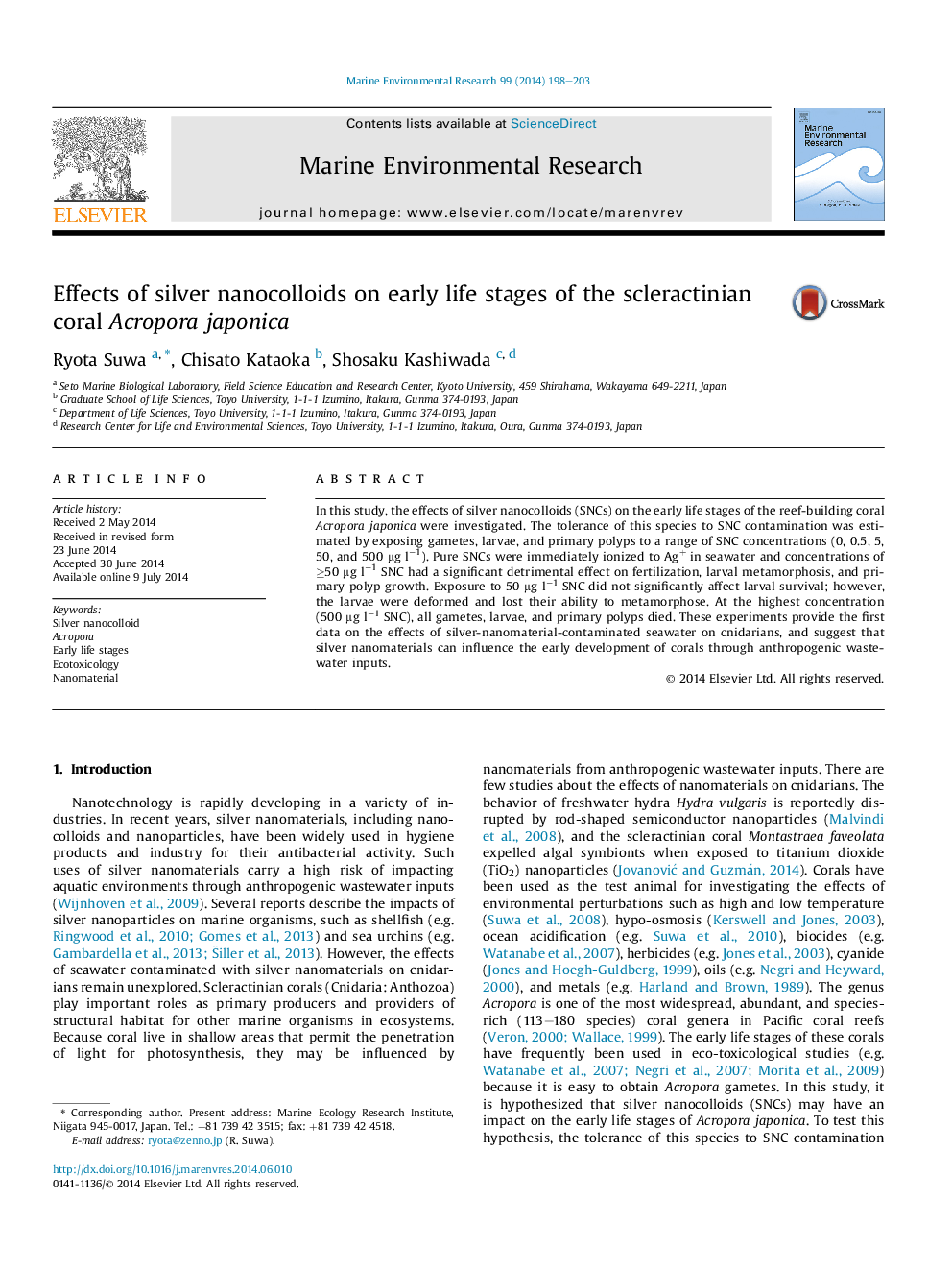| Article ID | Journal | Published Year | Pages | File Type |
|---|---|---|---|---|
| 6387829 | Marine Environmental Research | 2014 | 6 Pages |
Abstract
In this study, the effects of silver nanocolloids (SNCs) on the early life stages of the reef-building coral Acropora japonica were investigated. The tolerance of this species to SNC contamination was estimated by exposing gametes, larvae, and primary polyps to a range of SNC concentrations (0, 0.5, 5, 50, and 500 μg lâ1). Pure SNCs were immediately ionized to Ag+ in seawater and concentrations of â¥50 μg lâ1 SNC had a significant detrimental effect on fertilization, larval metamorphosis, and primary polyp growth. Exposure to 50 μg lâ1 SNC did not significantly affect larval survival; however, the larvae were deformed and lost their ability to metamorphose. At the highest concentration (500 μg lâ1 SNC), all gametes, larvae, and primary polyps died. These experiments provide the first data on the effects of silver-nanomaterial-contaminated seawater on cnidarians, and suggest that silver nanomaterials can influence the early development of corals through anthropogenic wastewater inputs.
Related Topics
Physical Sciences and Engineering
Earth and Planetary Sciences
Oceanography
Authors
Ryota Suwa, Chisato Kataoka, Shosaku Kashiwada,
